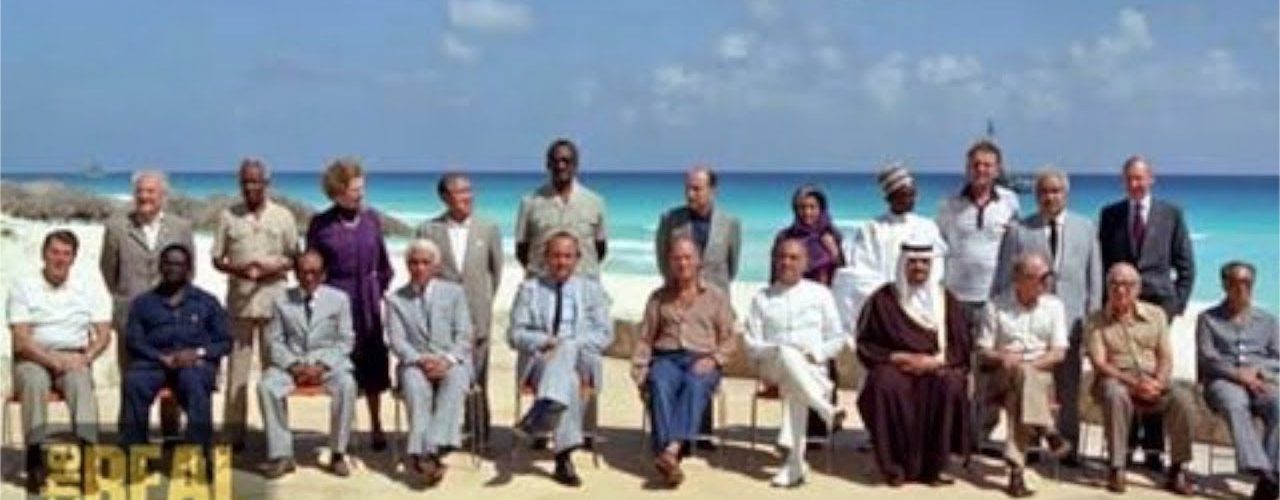Jobless growth wasn’t an accidental product, it was how the rules were framed says Vijay Prashad discussing how concentrated economic power, jobless growth and ecological disaster are the result of a rules based global trading system framed by US led advanced country policy makers and the powerful multinational corporations they back.
August 2013 Produced by Lynn Fries
TRANSCRIPT
LYNN FRIES, TRNN PRODUCER: Welcome to The Real News. I’m Lynn Fries in Geneva.
In this report, we take a look into the battle for a new policy framework of trade and investment rules, rules with an agenda, including the needs of the world’s people and the planet’s ability to sustain those needs. Specifically, we explore all this in relation to North-South trade negotiations and the operations of multinational corporations.
The Real News invited historian and author Vijay Prashad to talk to us about all this. Professor Prashad is Edward Said Chair at the American University of Beirut, Lebanon. Among the many books he’s authored are The Poorer Nations: A Possible History of the Global South and Arab Spring, Libyan Winter. He writes regularly for The Hindu, Frontline, and CounterPunch.
Vijay Prashad was recently keynote speaker at the United Nations Conference on Trade and Development Public Symposium. We met Vijay here in Geneva at the UNCTAD event.
Vijay Prashad, thank you for joining us.
VIJAY PRASHAD, PROF. INTERNATIONAL STUDIES, TRINITY COLLEGE: My pleasure. Thank you so much.
FRIES: In his keynote address on trade and investment rules, our guest made the point that growth is not a neutral process. And so we open our conversation with what this tells us about trade rules.
PRASHAD: Look, the question is people talk about the global economy. They talk about the need for, say, trade treaties. They talk about the importance of having some kind of global compact. But what’s not recognized is what these things mean.
So the first issue is when people talk about the global economy. What they mean is how everybody else’s economic activity intersects with the activity of, say, the major countries of the world, how it intersects essentially with multinational corporations, and essentially how that economic activity is legible in the logic of capitalism.
So when they start talking about creating treaties or rules that govern trade and development and economic activity in general, what people have to recognize is that the economy itself, firstly, is not neutral, and secondly, the rules are not framed in a neutral manner.
FRIES: Post World War II, in 1947, as part of an international effort towards economic recovery and development, the General Agreement on Tariffs and Trade, GATT, was established as the first multilateral instrument governing trade, commercial relations. Its stated purpose was to ensure “that economic warfare and beggar-my-neighbor policies that had deepened the Great Depression and stoked the tensions of war would never recur.”
From 1948, GATT was the only multilateral instrument governing international trade. And as trade liberalized under GATT, in the 1950s and 1960s transnational corporations of the advanced economies of the North expanded and became huge conglomerates. Also from the 1960s onwards, newly independent developing nations sought to find their place in the world as self-sufficient productive economies after colonial rule, and so joined GATT with its postwar legacy of international cooperation.
GATT, however, began to lose ground as an institutional framework for nations of the South to find mutual benefit in an agenda including its need to develop its own structures of production and its own scientific and technological capacity to compete.
PRASHAD: Somebody has framed the rules. In the 1970s, from the 1970s into the ’80s there was a series of specific interventions made by the North. You know, when the Group of Seven countries were created in 1973-74, they had a specific agenda. They include countries like the United States, Britain, Italy, Japan, Germany, etc. They had a very specific agenda: to move the so called economy–this arrangement of how people, you know, exchange goods, how they produce goods, etc.–in their interest.
So, for instance, because they had understood that capitalism was moving in the direction of so-called offshoring–a whole series of technological developments had presented themselves–you know, container ships, satellites for communication, easy ways to cut up factories and have bits of factories be in different countries, you know, what today is called, as if it’s a new thing, the global commodity chain–in other words, they disarticulated or broke up production. You know, firms were already doing that in the 1970s. So the Group of Seven countries, seeing that this is what was occurring, felt they needed to harness rules that gave the Group of Seven states and their populations advantages over the rest of the world. And indeed that’s what they did.
I mean, when they launched the big round of GATT, the General Agreement on Trade and Tariffs, the round that was launched in Punta del Este, Uruguay, that round brought up new issues, one of which, a very important issue, was intellectual property rights. You know, you may ask: what does intellectual property rights have to do with rules for the economy that was emerging? Actually, it was central for the North, because the way the North understood things is if production lines are going to be outsourced from the North, if they’re going to be set up in Mexico, Indonesia, East Asia, etc., how does the North protect, you know, its ability to thrive and grow if they were going to lose production to other places? Well, what they did was they created an architecture, a regime of intellectual property where the North was able to collect rent of goods that were produced elsewhere.
So for instance, if I’m Nike, which actually owns no factories anywhere itself, Nike will remain in the United States in Oregon, Nike will design shoes, but it will be produced outside the United States, subcontracted along the so-called value chain, in Indonesia, in Malaysia, etc. The shoes are sold, and Nike gets a rent of every shoe sold because they have the intellectual property right, they have a monopoly right over that kind of shoe. So Nike essentially collects rent of intellectual properties secured through international trade treaties.
So an international trade treaty isn’t just some neutral process.
FRIES: The postwar GATT dealt with issues of market access. As the WTO replaced GATT, new rules for trade and investment were put in place. These rules granted foreign capital international protections over their investment, intellectual property, and services, etc., along with liberalized market access. Framed by negotiators of the North, the needs of transnational corporations were well served in a new growth model and its underlying assumption that foreign direct investment is the motor of growth to create jobs and lift millions out of poverty.
PRASHAD: So today when there’s a discussion about treaties, about economic growth, etc., these discussion should not be absent the context. I mean, the context is a real one. The context is the context of the rules that had been created which worked against the interests of the South and protected the North’s ability for their economies to grow. And by the way, that’s what we call jobless growth, because in the North you will have growth from the collecting of rents, you know, on the intellectual property upon which you have a monopoly, but you don’t create jobs in your own country. So in the United States or in Northern Europe you can have high growth rates, the GDP will grow, but you don’t have jobs for the population. And that was called in the 1990s jobless growth.
Jobless growth wasn’t an accidental product. It was indeed how the rules were framed, to enable firms to take advantage of low wages elsewhere and yet, you know, insist that those firms are able to repatriate profits back to the North. And that was the essence of jobless growth.
FRIES: In this segment, we provided some historic context to trade rules. In our next segment, we take this forward into some current dynamics. Please join us for part two of our series with Vijay Prashad.
Our thanks to Vijay Prashad. And thank you for joining us on The Real News Network.
END TRANSCRIPT
Vijay Prashad is the Director of Tricontinental: Institute for Social Research, Chief Editor of LeftWord Books and Chief Correspondent at Globetrotter.
Originally published at TRNN



